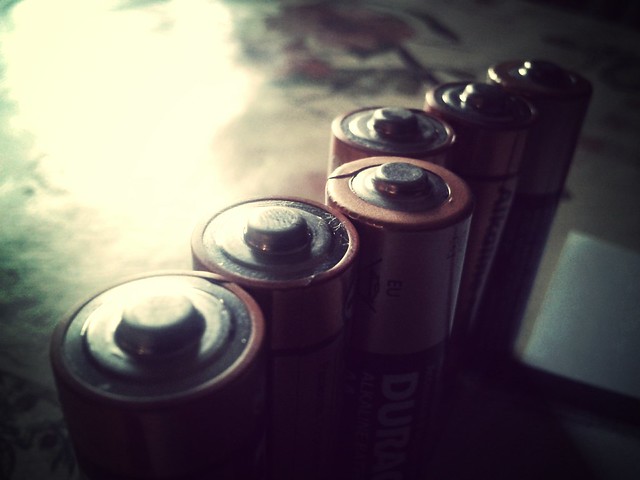Optimate Lithium Battery Charger-Need and Choice
Feb 27, 2020 Pageview:1006
Maintaining the load of devices, cars, appliances, motorcycles, and other technological devices is an issue that has given much to talk about and has generated a lot of work in recent years. In this regard, lithium-ion batteries, also called Li-Ion battery, were created. They are part of a kind of device specially designed for the storage of electrical energy that uses a lithium salt (as an electrolyte) that achieves the necessary ions for the reversible electrochemical reaction needed.
The properties of lithium-ion batteries are summarized in the lightness of their components, their high energy capacity and resistance to discharge, together with the low memory effect they suffer or their ability to operate with a large number of cycles of regeneration. In this way, these benefits have allowed the design of light, small size, and varied shapes accumulators, with high performance, specially adapted to the applications of the consumer electronics industry.
However, although they are currently being widely used, there are many doubts regarding everything related to lithium batteries, especially their charging method. One of the most common has to do with the charger, so it is wise to answer the following question...
What is an optimate lithium battery charger?
An optimate lithium battery charger refers to the charger of an optimized lithium battery that meets the necessary parameters to properly dispose of such a battery. Optimate Lithium battery chargers have been specially designed to improve the performance of lithium batteries. Its design is based on the behavior of the devices on their batteries and the incidents they may have on it.
In summary, a Li-Ion or Lithium charger is a device with a voltage and current limiter that takes into account the special considerations under which a lithium battery should be charged, including time. The charging time of Li-Ion batteries is approximately three hours, at an initial charging current of 1C. The full load is obtained after the voltage reaches its upper threshold and the current drops and stabilizes about 3% of its nominal rate or about 0.03 ° C. Because of this, a lithium battery should never be faced with a lead-acid charger or Ni-Cd / Ni-Mh charger so, we move on to the next question...
Do you need a special charger for lithium battery?
And the answer is yes. Lithium batteries operate at a higher voltage (3.7 volts instead of 1.2 volts) and can contain more electrons in the same amount of space. This makes them ideal for their longer lifespan in high-power electronic devices, such as laptops, digital cameras, and mobile phones.
Li-ion batteries are designed to operate safely within their normal operating voltage but become increasingly unstable if they are charged at higher voltages. When charged above 4.30v, the cell causes lithium metal coating on the anode, the cathode material transforms into an oxidizing agent, loses stability and releases oxygen. This generates overheating that causes the cell to heat up and, consequently, annihilates the battery's useful life.
To understand it a little better, if you use a charger not optimized to charge a lithium battery, you will probably be able to charge it but you will not take advantage of 100% of its capacity.
The main problem of using a charger for lead-acid batteries in lithium batteries is that lead-acid batteries have a lower voltage and the chargers for these batteries are designed according to this voltage.
And, yes, many universal chargers are programmed to, in case of detecting a voltage too low in the battery, apply high voltage to try to dissolve lead sulfate; but is exactly this high voltage what would irreversibly damage a lithium battery since they are more susceptible to overvoltage.
In this way, it is ideal to answer the next concern...
How do you choose an optimate lithium battery charger?
There are different types of lithium batteries so the first step is to identify which one is yours. However, it is always advisable to opt for an optimate since optimal chargers start charging at a lower voltage rate than other chargers. They are special for the most basic and unprotected batteries since they start the process of charging the lithium battery gently (in a lower voltage range) until reaching the proper voltage starting. In this way, a good optimal lithium battery charger works according to the following aspects of interest:
- Correct charging of a lithium battery: Lithium batteries are voltage sensitive and cannot accept more than their maximum nominal voltage. The ideal maximum load voltage of a basic cell is 3.6 V and some advanced cells can accept a slight overvoltage for short periods, up to 3.65 V per cell. If this tension is overcome, the cells heat up quickly and are destroyed.
In the case of the optimate lithium battery charger, its design allows recharging lithium batteries only up to 100%. In addition, its exceptional pulse equalization mode eliminates the need to balance cells individually.
- Recovery of a low voltage lithium battery: A lithium battery below 8 volts is in an unbalanced and sensitive state, and its cells have different resistances; applying high intensity will develop different voltages in the cells and it is likely that the weakest will develop a voltage that is too high to destroy the cell and cause a short circuit. Therefore, there will be three cells, each one with overvoltage, so that immediately there will be none left.
That is why a SAVE or recovery mode has been added to the optimate lithium battery charger that has been developed following a thorough research and development process on the safe recovery of low voltage lithium cells. If a cell has been damaged during a serious discharge, the optimate lithium charger will detect it and stop charging, which will prevent unnecessary overloading of cells in good condition or overheating the battery.
- Maintenance of a lithium battery: Lithium batteries have very low internal drainage, so they do not need continuous maintenance. In fact, this will weaken the battery over time. Once the battery is fully charged (100%), it cannot and should not continue to receive the charge. The best practice is to charge the battery to the maximum and only recharge it when the charge level has dropped a little 100%. In this sense, an optimate lithium battery charger includes a maintenance charging mode that controls the battery charge level automatically and only supplies charge when the battery needs it.
With this information in mind, you can choose the best optimate lithium battery charger to help you preserve your precious lithium battery. What are you waiting to buy one?
- Prev Article: Optimal Charging of A Lithium-ion Battery
- Next Article: Lithium-Ion Solar Storage Battery- Storage Analysis
Leave Message
Hottest Categories
-
Hottest Industry News
-
Latest Industry News












